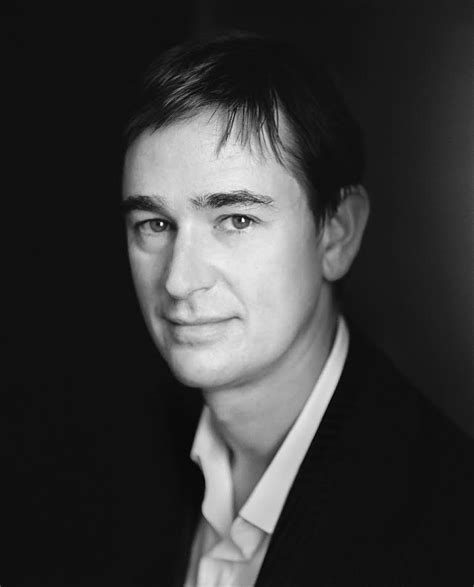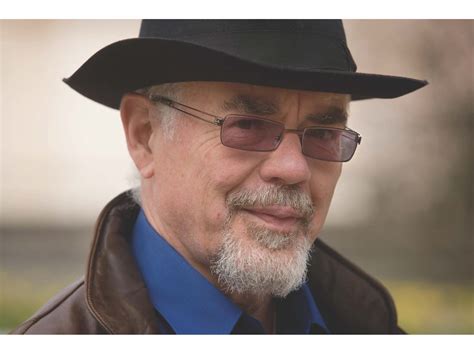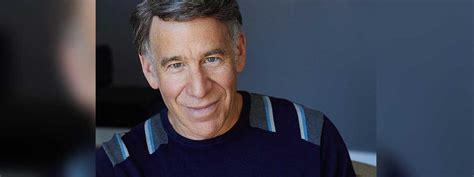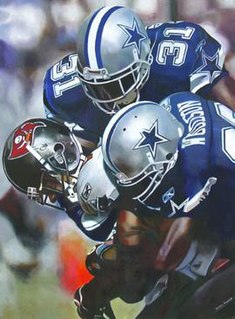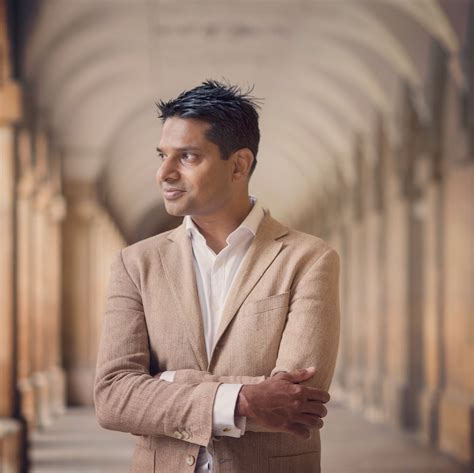A Quote by Russ Roberts
Self-deception can be more comforting than self-knowledge.
We like to fool ourselves.
Quote Topics
Related Quotes
What is the most fascinating kind of self-deception to me, and a kind that isn't necessarily unhealthy, is what Friedrich Nietzsche called "strategic self-deception." The kind of self-deception that you can engage in with your eyes wide open. You do it because you say, "There's things that I couldn't accomplish without this kind of self-deception."
If... deceit is fundamental to animal communication, then there must be strong selection to spot deception and this ought, in turn, to select for a degree of self-deception, rendering some facts and motives unconscious so as not to betray - by the subtle signs of self-knowledge - the deception being practiced.' Thus, 'the conventional view that natural selection favors nervous systems which produce ever more accurate images of the world must be a very naive view of mental evolution.
Self-knowledge is not the knowledge of a dead self, self-knowledge is the knowledge of the process of the self. It is an alive phenomenon. The self is not a thing, it is an event, it is a process. Never think in terms of things, the self is not there inside you just like a thing waiting in your room. The self is a process: changing, moving, arriving at new altitudes, moving into new planes, going deeper into new depths. Each moment much work is going on and the only way to encounter this self is to encounter it in relationship.
When hard times come, the greatest danger does not necessarily lie in the circumstances we face, but rather in the way we treat ourselves at the time. Nothing is more dangerous than self-hate. Nothing makes it more difficult to heal or to find the grace of peace than self-attack and the agony of self-doubt.
First, my people must be taught the knowledge of self. Then and only then will they be able to under-stand others and that which surrounds them. Anyone who does not have a knowledge of self is considered a victim of either amnesia or unconsciousness and is not very competent. The lack of knowledge of self is a prevailing condition among my people here in America. Gaining the knowledge of self makes us unite into a great unity. Knowledge of self makes you take on the great virtue of learning.
Re-vision – the act of looking back, of seeing with fresh eyes, of entering an old text from a new critical direction – is for woman more than a chapter in cultural history: it is an act of survival. Until we understand the assumptions in which we are drenched we cannot know ourselves. And this drive to self-knowledge, for women, is more than a search for identity: it is part of our refusal of the self-destructiveness of male-dominated society.
Self-deception is a defining part of our human nature. By recognizing its various forms in ourselves and reflecting upon them, we may be able to disarm them and even, in some cases, to employ and enjoy them. This self-knowledge opens up a whole new world before us, rich in beauty and subtlety, and frees us not only to take the best out of it, but also to give it back the best of ourselves, and, in so doing, to fulfil our potential as human beings. I don't really think it's a choice.
You bet I write disaster fiction. We have compiled a disastrous record on this planet, a record of stupidity and absurdity and self-abuse and self-aggrandizement and self-deception and pompousness and self-righteousness and cruelty and indifference beyond what any other species has demonstrated the capacity for, which is the capacity for all the above.
We have the need to be accepted and to be loved by others, but we cannot accept and love ourselves. The more self-love we have, the less we will experience self-abuse. Self-abuse comes from self-rejection, and self-rejection comes from having an image of what it means to be perfect and never measuring up to that ideal. Our image of perfection is the reason we reject ourselves the way we are, and why we don't accept others the way they are.
That's the old AA maxim, "Always have a drink in your hand and you'll never want a drink." That's one of the most classic deceptions in the literature: "I'll take a drink tomorrow." I actually don't think that's necessarily a very helpful maxim in AA, but it's a very good maxim in showing how strategic self-deception can be employed, even self-consciously. That's the amazing thing, to me, about self-deception.


